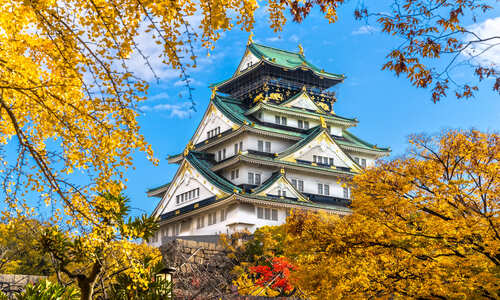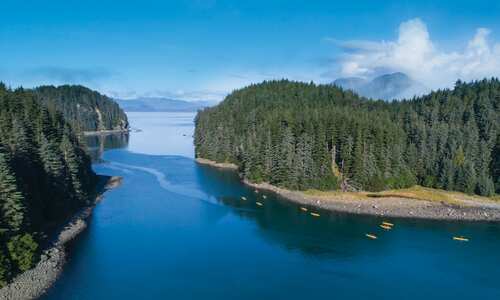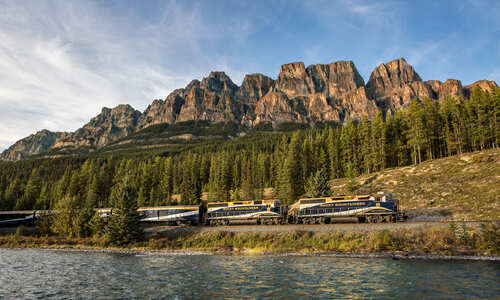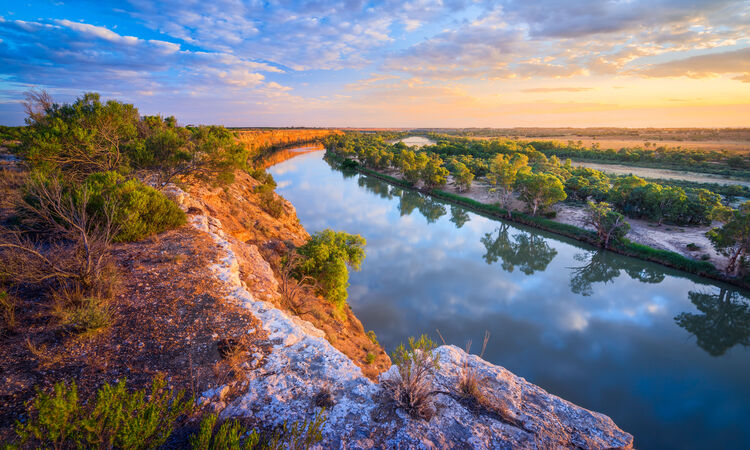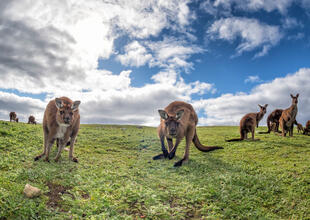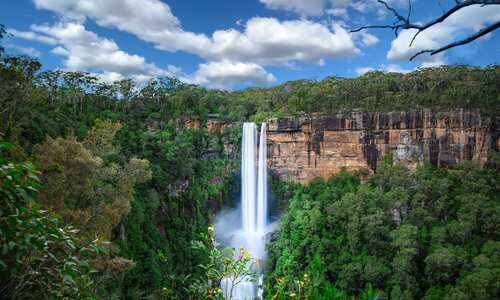Article content
24 May 2018 by Amy Sohanpaul
There are few firsts in modern-day exploration, but visiting all of the UK Overseas Territories is one of them. It’s a feat that took our latest Honorary President Stewart McPherson more than three years and no little determination to accomplish.
They’re far-flung and few between, these mostly island outposts of ours, and many remain mysterious and almost inaccessible. To visit them all required a complicated combination of cargo ships and private yachts, military flights and a voyage on the world’s last working Royal Mail ship. For many this would be a logistical challenge too far, but for someone like Stewart McPherson, who chartered helicopters while still at university in order to search for rare plants in the remote plateaus of Venezuela, it was a case of passion and perseverance. I suggest that it’s unusual for a student to organise something so epic based on helicopter hire. “We were genuinely very lucky. I was travelling with two people who had massive grants, and we pooled our resources because it was the only way to reach some of the more inaccessible plateaus, many of which were only sighted for the first time by outsiders in the 1950s. During our trip we landed on many of these extremely remote lost world plateaus, and discovered or rediscovered several lost or at risk plant species, many of them carnivorous. There are about 700 worldwide, and at that time hundreds of them had never been photographed. And these plants are beautiful and intricate. Many of them have spectacular stories behind them, about how they’ve evolved to capture and kill animals, in some cases animals as big as rats or shrews.”

Since that student trip to Venezuela, Stewart says he must have climbed about 300 mountains across Asia to document different carnivorous plants. Every discovery and observation has been meticulously documented in books published after each expedition by his company Redfern Natural History Productions, each book funding the next expedition. Like the epic expedition to Venezuela, the company is something he set up while still a student. Both ventures were undertaken as steps towards his ultimate goal, making wildlife films and documentaries about the natural world. I ask him what made him choose it as a career and he says, simply, “I just had to. It was in me. I had no choice about it. So whoever or whatever created me is to blame for that.”
In Britain’s Treasure Islands, a staggeringly comprehensive and handsome tome based on his travels to the Overseas Territories, he writes: ‘I have been obsessed with the natural world for as long as I can remember. I began to collect shells, fossils, rocks and butterflies as soon as I could walk to find them, and from the age of seven, I amassed a small zoo in my bedroom as I reared up to one hundred species of insects, fish, reptiles, spiders, frogs, salamanders, crayfish, hermit crabs, giant millipedes and countless other exotic treasures. I loved plants as much as animals, and bred and collected carnivorous plants.’

I ask him about his keen interest in the latter. To hear him talk about them is a delight of details. “Most people don’t find plants as interesting as animals, because they don’t move. They’re not as dramatic as an elephant charging or a rhino snorting. But many plants are keystone species in ecosystems, so if they’re lost, so are animals.” Such is Stewart’s affection for plants, and in particular pitcher plants, that he named a giant species he discovered in the Philippines in 2009 after one of his heroes, Sir David Attenborough. All his life he has dreamt about making wildlife films in the Attenborough tradition, and every expedition and every book published has been a means to this end. And the tremendous effort and dedication has paid off, leading to short films for the BBC, including Decade of Discovery, and presenting on another with Attenborough, called Plants Behaving Badly, and most recently, the BBC Four films based on exploring the Overseas Territories. He tells me that one of the people he’d most want to share a desert island with would be Sir David. “I love his work. Of course probably everyone alive who loves wildlife would answer the same, he’s been so significant and inspiring.”
We’re talking islands because other than Gibraltar, all the Overseas Territories are islands, some more idiosyncratic than others. We’re also talking islands because they remain endlessly enticing for so many people, and I ask Stewart for his expert opinion on this. "Well, they’re miniature worlds. You can step onto an island and it’s a whole planet. From an ecological perspective, from a wildlife perspective, normal rules might not apply. You might have ecosystems ruled by crabs, or by giant lizards. On others, you might have people whose cultures have been uniquely preserved. I was very fortunate to visit Tristan de Cunha, the most remote populated island in the world, and the Pitcairn Islands, in whose waters the mutiny on the Bounty took place. In Pitcairn proper, so many wonderful words from the 18th century have been preserved, and even the accents of the mutineers linger to this day, pronouncing words with Geordie or West Country accents. Sailor speak has been preserved since the time of the mutineers."

On Tristan de Cunha likewise, they have many words that have been lost in modern English, old quirks such as an ‘h’ before a vowel, so they say ‘hadministrator’. Some say Tristan English is perfectly preserved 19th-century English dialect, and while that’s not quite true, like many of the old territories, Tristan does retain wonderful old dialects. These were two of the stops on the Overseas Territories tour of those places that have chosen to remain a part of the UK. While Stewart was intrigued by the varied cultures, it’s clear that for him, the main attraction and significance of the Territories is wildlife. “Many of the territories are tiny, but they are disproportionately important for wildlife. They are home to 95% of the UK’s biodiversity. They are home to species not found anywhere else on the planet, hundreds of species globally important for conservation purposes, like green turtles. They are home to some of the most significant penguin colonies in the world. The biggest albatross colony in the world is on the Falkland Islands. And in South Georgia, the concentrations of life, including penguins and seals, are just ridiculous. It seems to me that this is a secret side of the UK, that most British people don’t even know is part of their own country.”
It seems fitting that, other than Sir David Attenborough – and his wife – the one other person he would choose to share his desert island with is Sir Winston Churchill. “I find him absolutely fascinating in every regard. Films focus on his puggish bumptiousness, but he was just hilarious in person. I love his determination, his favourite motto – keep buggering on and never give up. I find him a complete inspiration. Whenever I’m down I listen to some quotes by him and he never fails to lift my spirits and keep me going.”
Given that Stewart has always kept going on, up many a mountain and over thousands of sea miles, and looks set to be a major name in the world of natural history, he can be pretty inspirational too. These are the closing lines of Britain’s Treasure Islands (after chapters rich in photography and detail and gatefold maps and tales of derring-do): '...if you do have sincere ambitions, following your dreams will truly bring a sense of fulfilment and pleasure that nothing else can rival. I have learnt that it really is up to you to make your dream happen – don’t be the person who suffers life, and counts away every hour, day month and year. If the story of my project encourages anyone – even in the smallest of ways – to move closer to his or her dreams, then I will be very happy.'


